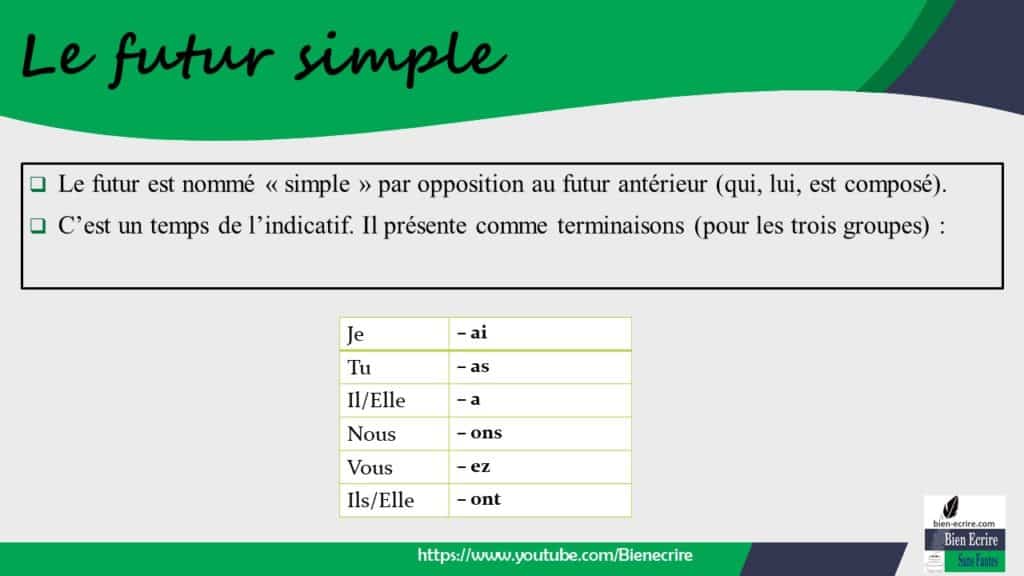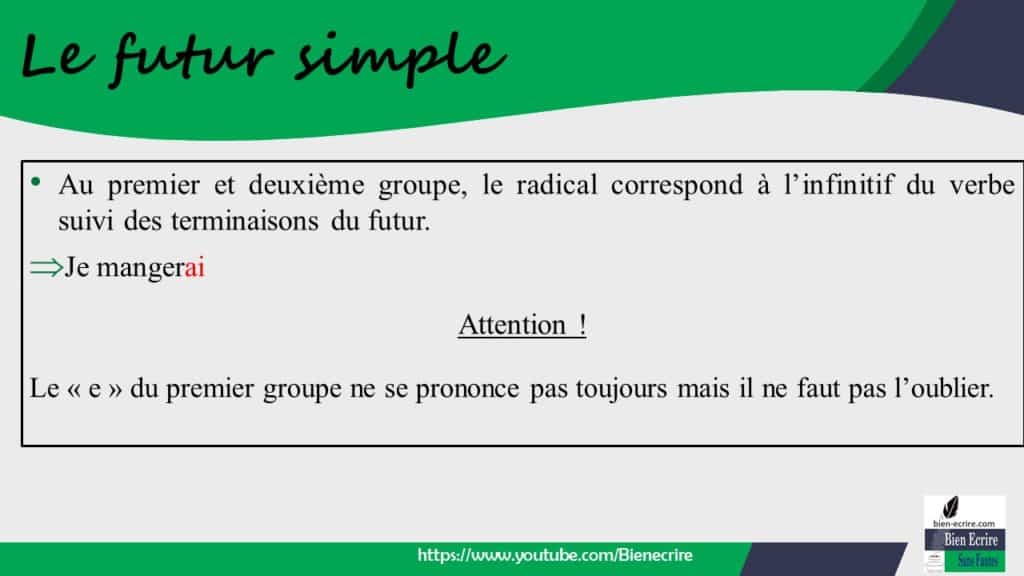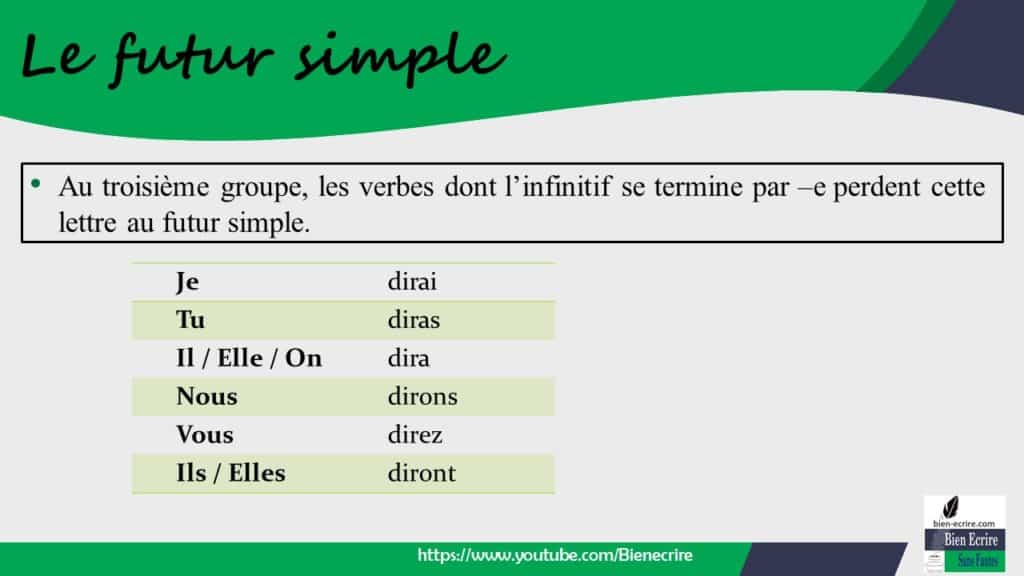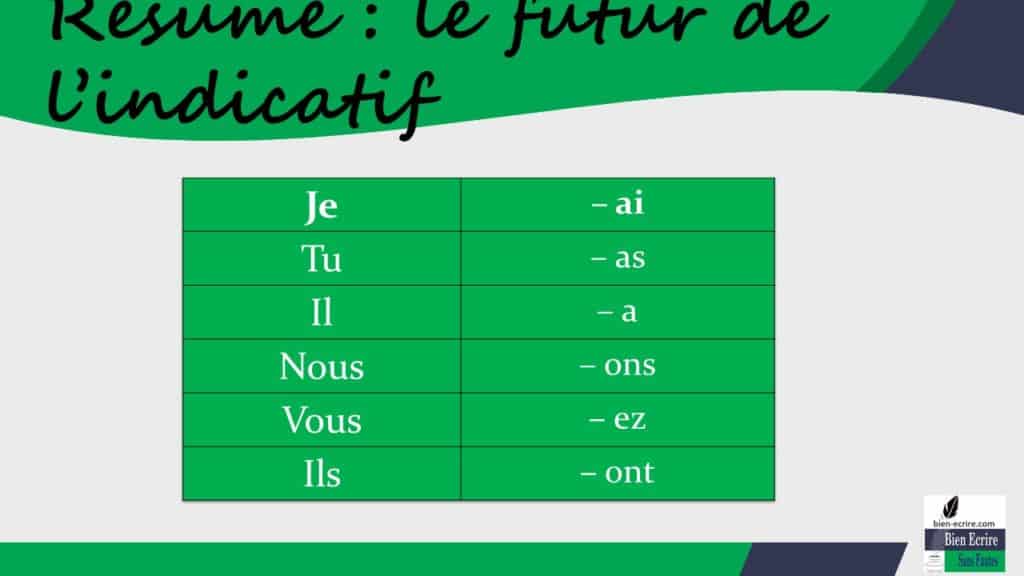Caractéristiques du Futur Simple
Le futur simple est l’un des temps de l’indicatif et se caractérise par les terminaisons suivantes : ai, as, a, ons, ez, ont. Pour les verbes appartenant au premier et au deuxième groupe, le radical correspond à l’infinitif du verbe, auquel on ajoute les terminaisons du futur.
Exemple avec le Verbe « Manger »
Par exemple, en conjuguant « manger » au futur simple, on obtient « je mangerai ». Il est important de noter que bien que le « e » du premier groupe ne soit pas toujours prononcé, sa présence est essentielle à l’écrit.
Conjugaison des Verbes du Deuxième Groupe
Pour les verbes du deuxième groupe, le processus est identique. Ainsi, « finir » devient « je finirai », tu finiras, il finira, nous finirons, vous finirez, ils finiront.
Conjugaison des Verbes du Troisième Groupe
Le troisième groupe, quant à lui, présente une légère complexité. Les verbes dont l’infinitif se termine par « re » perdent cette lettre au futur simple.
Exemple avec le Verbe « Dire »
Par exemple, « dire » devient « je dirai », tu diras, il dira, nous dirons, vous direz, ils diront.
Modifications de Radicaux
Certains verbes nécessitent des modifications supplémentaires dans leur radical. Ainsi, les verbes se terminant en « -yer », « -uer », « -ier » ajoutent un « e » à leur radical. C’est le cas de « parcourir » qui se conjugue au futur simple de la manière suivante : je parcourrai, tu parcourras, il parcourra, nous parcourrons, vous parcourrez, ils parcourront.
Exemple avec le Verbe « Devoir »
Le verbe « devoir » introduit un « r » supplémentaire, donnant : je devrai, tu devras, il devra, nous devrons, vous devrez, ils devront.
Verbes Irréguliers
Il est aussi essentiel de se rappeler que certains verbes subissent des modifications radicales, comme le verbe « aller » qui est irrégulier : j’irai, tu iras, il ira, nous irons, vous irez, ils iront. L’apprentissage par cœur est alors nécessaire.
Les Auxiliaires « Être » et « Avoir »
Il en va de même pour les auxiliaires « être » et « avoir » qui sont fondamentaux en français : je serai, tu seras, il sera, nous serons, vous serez, ils seront et j’aurai, tu auras, il aura, nous aurons, vous aurez, ils auront.














